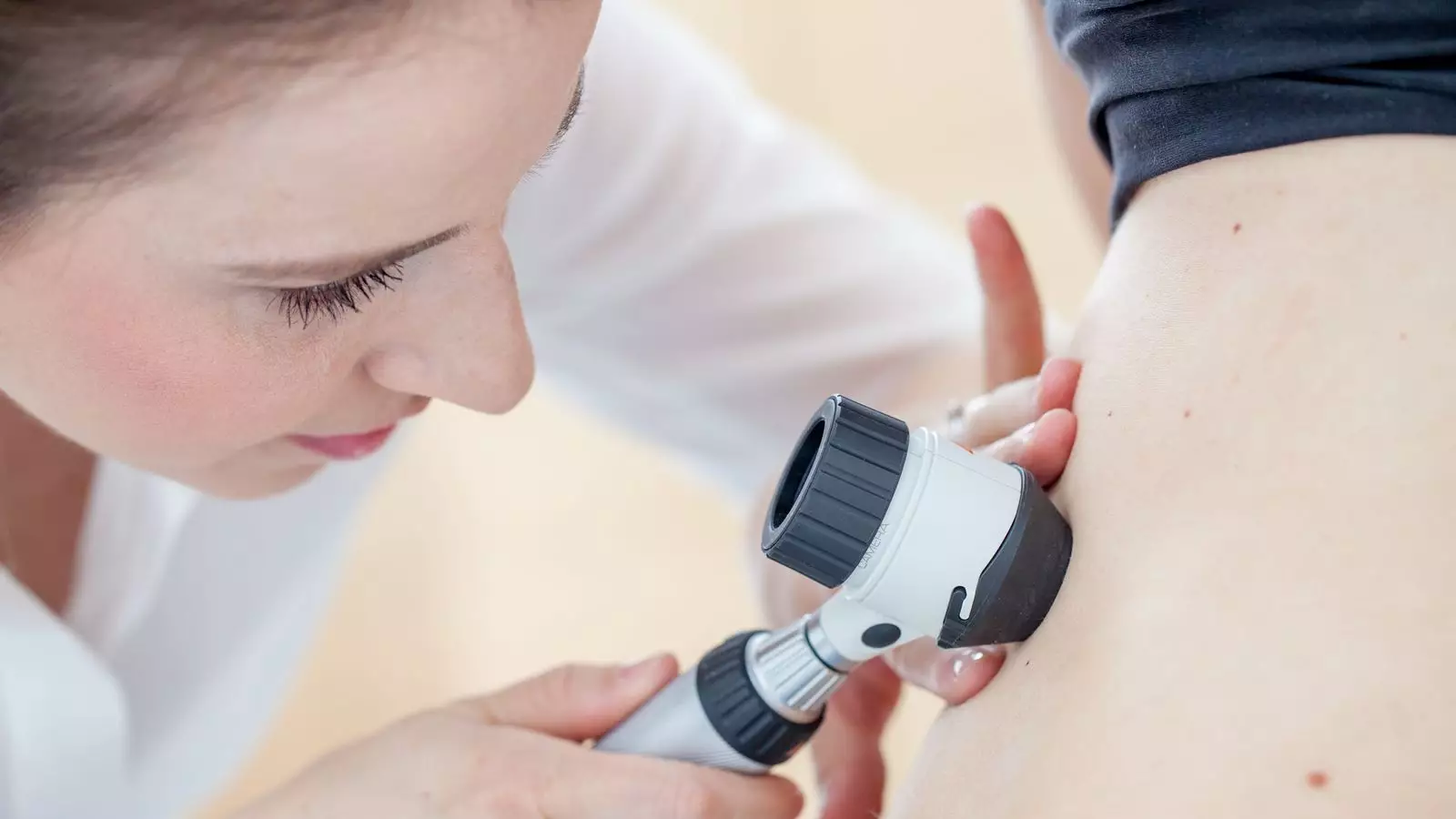Melanoma skin cancer cases in the UK have reached an all-time high, with a projected 20,800 individuals expected to receive a diagnosis this year. According to Cancer Research UK, rates of melanoma have spiked by nearly a third over the past decade. The incidence has surged from 21 cases per 100,000 individuals between 2007-2009 to 28 cases per 100,000 people between 2017-2019. The analysis reveals that this upward trend in cases is evident across all age groups, with a significant increase observed in adults over 80, where there has been a 57% rise in cases over the last ten years. Even in the age group of 25 to 49, there has been a 7% increase in melanoma cases.
Statistics from Cancer Research UK indicate that approximately 17,000 melanoma cases each year are preventable, with nearly 90% of these cases attributed to excessive exposure to ultraviolet (UV) radiation. UV radiation from the sun or artificial sources like sunbeds can harm the DNA in skin cells, leading to the development of skin cancer. The charity recommends protective measures such as staying in the shade, particularly between 11 am and 3 pm, wearing protective clothing, a broad-brimmed hat, UV-resistant sunglasses, and applying sunscreen with at least SPF 30 and 4 or 5 stars regularly.
One individual who was diagnosed with skin cancer after noticing a small anomaly above her knee is Caroline Jones, a postmistress from Shrewsbury. Ms. Jones, inspired by her mother’s battle with cancer, advises people to have their skin examined if they have any concerns. After detecting a peculiar mole-like spot on her leg in July 2018, Ms. Jones visited her GP, who confirmed the presence of cancerous cells. Subsequently, the mole was removed without further treatment.
Survival Rates and Awareness
While the incidence of melanoma is rising, there is a silver lining in terms of improved survival rates. Cancer Research UK data reveals that nearly 90% of adults diagnosed with melanoma in England can expect to survive the disease for ten years or more. The charity notes that younger individuals are more cognizant of the sun-skin cancer connection compared to older generations, who may have been exposed to high levels of UV radiation during mass tourism periods. Factors such as a growing and aging population and enhanced awareness of skin cancer symptoms also contribute to the increased number of cases.
Dr. Claire Knight, a senior health information manager at Cancer Research UK, emphasizes that even one episode of sunburn every two years can triple the risk of developing skin cancer. Hence, preventive measures like sun protection and regular skin checks are crucial in reducing the incidence of melanoma.
Recent developments in cancer research have led to innovative treatment options for melanoma patients. The emergence of personalized mRNA cancer vaccines, such as the one being tested in British patients, represents a potential breakthrough in cancer therapy. This bespoke jab, created individually for each patient within a short timeframe, has shown promising results in lowering the risk of cancer recurrence in melanoma patients. A stage-3 trial of the vaccine, jointly conducted by Moderna, MSD, and University College London Hospitals NHS Foundation Trust, is currently underway, holding the promise of a more effective treatment for melanoma and potentially other cancers like lung, bladder, and kidney cancer.


Leave a Reply